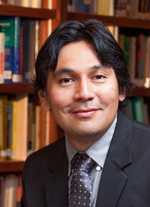
- This event has passed.
Social Network Analysis Institute
If you are interested in attending, please contact Mark Leong at https://heri.ucla.edu/social-network-analysis-institute/
The Social Network Analysis (SNA) Institute offers participants the opportunity to learn key network concepts (e.g., centrality, extensity, and power) and to conduct sophisticated network analyses with software that is freely available to the public. Participants will employ an innovative analytic method (Network Analysis of Qualitative Data —NAQD) capable of powerfully blending quantitative, mathematical, and qualitative principles to analyze text data. Given the abundance of texts and other types of data that can be coded, the use of network principles to study actors, codes, and texts, has the potential to enhance the analytic research process —by supporting or corroborating the results obtained through qualitative analytic techniques. No other workshop on SNA will provide participants with the opportunity to conduct NAQD and to explore its potential to examine issues in higher education.
A laptop is important in following the discussions. Please install the R software on to your laptops before coming to the institute.
Lodging Information: A limited number of rooms at a special conference rate of $195/night are available at the Hotel Angeleno. Reservations can be made by calling 1-866-264-3536. Please reference “UCLA-HERI Summer Institute.”
Featured Speakers for Social Network Analysis Institute 2017

Dr. Cecilia Rios-Aguilar
Associate Professor
Graduate School of Education and Information Studies
Director, Higher Education Research Institute
University of California, Los Angeles
Expertise:
- Educational and occupational trajectories of under-represented students
- Quantitative research methods
- Big data, social media, and mobile technologies
- Community colleges
- Educational policies

Dr. Manuel S. González Canché
Assistant Professor of Higher Education
The University of Georgia
Expertise:
- Community colleges
- Causal inference
- Underrepresented students’ educational and occupational trajectories
- Higher education policy
- Spatial Dependence and Network Analysis
